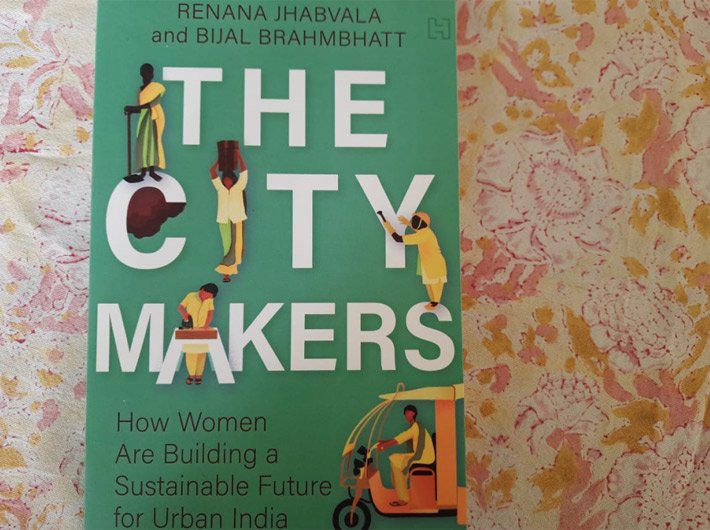Excerpt from ‘The Citymakers: How Women Are Building a Sustainable Future for Urban India’
The Citymakers: How Women Are Building a Sustainable Future for Urban India, published by Hachette India this month, narrates the genesis and journey of the Mahila Housing SEWA Trust (MHT), set up in 1994 to respond to the shelter-related challenges faced by the poor urban women. In the epilogue of the book, the authors – Renana Jhabvala, chairperson of SEWA Bharat, and Bijal Brahmbhatt, director since 2009 of MHT – present the key points they emphasize in their “conversations with policymakers, funders, business, other civil society and our partners”, which reads like a veritable manifesto of a movement whose time has come.
Here is a relevant excerpt from the book:
Advocacy is the act of seeking support for the changes one wants to recommend. It is easy to advocate for ourselves, and we all do it – within families, in our neighbourhoods, in schools, colleges and workplaces, and with the government. Advocating for someone else becomes tricky, and when organizations like MHT advocate on behalf of the disenfranchised and marginalized with governance institutions and policymakers, it is an act of responsibility. MHT plays this role with sensitivity and thoughtfulness, ensuring that the demands it is raising and the changes in policy and regulations it is seeking are those that are born in grassroots voices.
Learning from our practice and listening to the voices of the urban poor, especially the women we seek to empower, MHT advocates for housing rights of the urban poor and responsible urbanization as a continuum – from access to basic services of water, sanitation and electricity, to finance, the right to legally own land and avenues to participate in city planning. At the centre of this advocacy is the call to recognize the urban poor as citizens who have human rights equal to every other resident of a city. In all our conversations with policymakers, funders, business, other civil society and our partners, we emphasize:
• Every urban poor citizen has the right to universal basic services: Provisioning of and access to water and sanitation must be delinked from tenure status and land ownership of the occupant of the house. Only then can universal coverage of basic infrastructure and services be achieved.
• Housing is an environment: We define housing for the urban poor as a package – an adequate structure (that is, a roof over one’s head) along with access to basic services and finance options, just like the middle class has.
• Upgrade, don’t relocate: Keep people and upgrade their housing where they have already made their homes. Relocation breaks community bonds and destroys the investment the urban poor have made in their housing. We unequivocally state that in situ upgradation is a low-cost, high-impact intervention.
• Extend institutional housing finance to informal-sector workers: The poor are not looking for handouts; they are willing to pay back loans. The informality of their employment and tenure limits their access to institutional finance. Policies to overcome these barriers are essential to enable them to access reasonably priced loans.
• Develop graded bylaws and building codes for low-income housing: Current policies and regulations for building codes are not contextualized for each city and are not calibrated to the capacity of the urban poor to make a financial contribution towards upgrading their housing. Special codes and bylaws are needed for urban informal settlements.
• The impact of climate change is a reality that affects the urban poor disproportionately: Action is needed today to build the resilience of the urban poor to adapt to climate change stressors, which adversely affect their earning potential and ability to live healthy lives. Housing designs in use currently must incorporate climate-resilience features in the structure and building materials.
• Simplify urban land laws to make ownership of land by the urban poor a reality: Complex and contradictory rules force urban poor residents to live with the tag of an ‘illegal occupant’ and the fear of eviction. They are willing to pay for land as part of their efforts to pull themselves out of poverty, to build a better life for themselves and their children. A responsive government must take cognizance of this aspiration and need.
[Excerpted with permission from 'The City Makers' by Renana Jhabvala and Bijal Brabmbhatt, published by Hachette India.]
